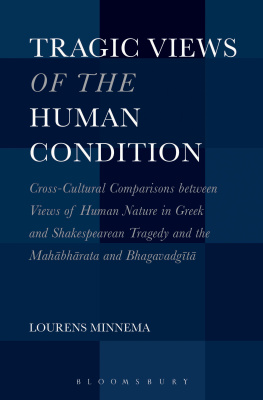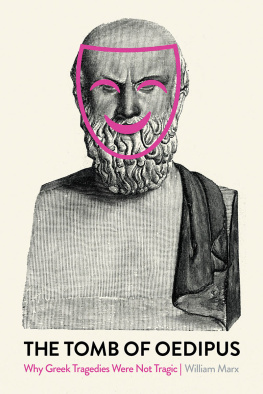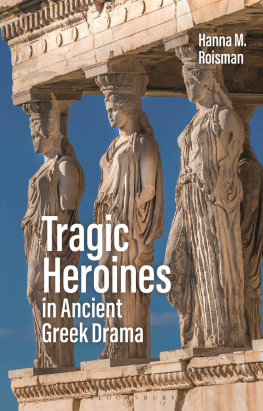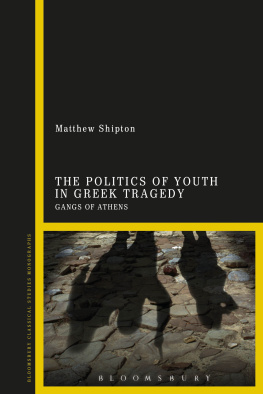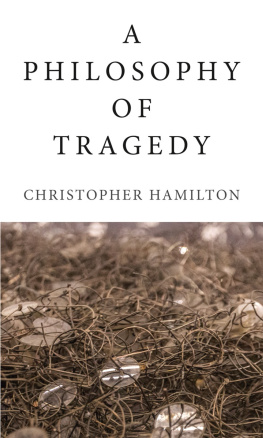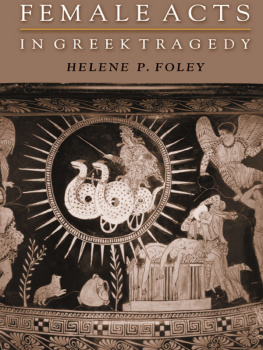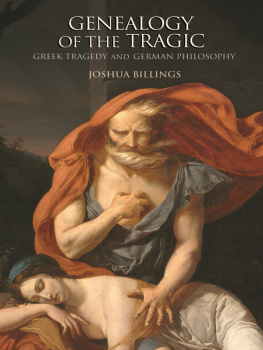
The Kurukshetra Battle from The Mahabharata. The British Library Board: Or. 13180. Used with kind permission from the British Library.
Tragic Views of the Human Condition
Tragic Views of the Human Condition
Cross-cultural comparisons between views of human nature in Greek and Shakespearean tragedy and the Mahbhrata and Bhagavadgt
LOURENS MINNEMA

Bloomsbury Academic
An imprint of Bloomsbury Publishing Plc
| 175 Fifth Avenue | 50 Bedford Square |
| New York | London |
| NY 10010 | WC1B 3DP |
| USA | UK |
www.bloomsbury.com
First published 2013
Lourens Minnema, 2013
All rights reserved. No part of this publication may be reproduced or transmitted in any form or by any means, electronic or mechanical, including photocopying, recording, or any information storage or retrieval system, without prior permission in writing from the publishers.
No responsibility for loss caused to any individual or organization acting on or refraining from action as a result of the material in this publication can be accepted by Bloomsbury Academic or the author.
Library of Congress Cataloging-in-Publication Data
Minnema, Lourens, 1960
Tragic views of the human condition: cross-cultural comparisons between views of human nature in Greek and Shakespearean tragedy and the Mahabharata and Bhagavadgita/Lourens Minnema.
pages cm
Includes bibliographical references (pages ) and index.
ISBN 978-1-4411-9424-4 (hardcover: alk. paper) 1. TragedyHistory and criticism. 2. Tragic, The. I. Title.
PN1892.M56 2013
808.2512dc23
2012042522
ePub ISBN: 978-1-4411-0069-6
Typeset by Deanta Global Publishing Services, Chennai, India
For Thierno Ibrahima Bah
Chaque homme porte en lui un monde compos
de tout ce quil a vu et aim
et o il rentre sans cesse alors mme quil parcourt et semble habiter
un monde tranger.
Chateaubriand, Voyage en Italie , Lettre troisime M. Joubert
Tivoli, 11 dcembre 1803
Contents
T his book is the unintended fruit of a comprehensive research project on religious and humanist views of human nature initiated by the then Head of Department of Philosophy of Religion and Comparative Study of Religions at VU University, Amsterdam, Prof Dr Hendrik M. Vroom. I am grateful for his energetic efforts to have facilitated the research. I also thank my colleague, Dr Victor A. van Bijlert, for his comments on the Hindu sections. I am greatly indebted to my colleague in the Faculty of Philosophy, Dr Louise D. Derksen, who has been of tremendous support at the time I most needed it. She suggested many ways of abridging the earlier draft of the manuscript, as well as stylistic improvements and grammatical corrections. I also wish to extend my thanks to Prof Dr Jan C. Heesterman (University of Leiden) for his continuous readiness to share his insights with me, and to Prof Dr Michael McGhee (University of Liverpool) for his moral support and for bringing me into contact with Continuum.
Regarding substantial sections in Part II, paragraphs 3 and 4, of Chapter III ArtisticCommunicative Aspects, I thank Peeters Publishers and Booksellers (Louvain) for granting permission to reproduce identical sections of my article One DialogueFour Relationships: The Different Layers of Meaning in the Dialogue between Krishna and Arjuna in the Bhagavadgt, which was published in Studies in Interreligious Dialogue 21/1 (2011), 96111.
Lourens Minnema
Amsterdam, in the autumn of 2012
Gliding silently over the fields, flying across one cultural landscape to the other and back again, this book aspires to compare cross-culturally Western and Indian tragic views of the human condition. The wider scope of interest of the cross-cultural comparisons is marked off by a broad key question : Can tragic views of the human condition, as known to Westerners through Greek and Shakespearean tragedy, be identified outside European culture, in the Indian culture of Hindu epic drama?
This broad key question has to be narrowed down for practical reasons. For one thing, of the core texts that can be considered prototypical of Greek and Shakespearean tragedy, I will mainly concentrate on Sophocles Oedipus Tyrannus and Antigone and on Shakespeares Hamlet . These three texts are widely held to be among the best examples of what tragedy is about, as a literary genre. Hindu epic drama appears to be quite different as a literary genre, but the Mahbhrata epic, which includes the Bhagavadgt , can be used to make a good comparison when it comes to issues regarding views of human nature. The anthropological issues seem much more similar cross-culturally than the literary genres which contain them might suggest. My main interest is in the anthropological issues.
Whether this first impression will hold remains to be seen, but it can serve to narrow down the broad key question of the wider scope of interest. The major key question limiting the actual frame of reference and guiding the cross-cultural comparisons can then be formulated as follows: in what respects can the Mahbhrata epics and the Bhagavadgt s views of the human condition be called tragic in the Greek and Shakespearean senses of the word? There are no universal criteria to measure the extent to which views of the human condition in various cultures differ. However, this observation does not make the question altogether impossible to answer. It makes the question answerable in many different ways depending on the framing of the comparisons. Properly framing the comparisons is one methodological problem to be faced.
Taking seriously the generic variety of cultural sources is another problem at hand. Views of human nature are expounded in theories, condensed in concepts, imagined in symbols and embedded in stories. Tragic views of the human condition are primarily embedded in stories, the plots of tragedies. Only afterwards are these tragic views of the human condition expounded in theories of tragedy and in philosophical anthropologies. In order to trace tragic views of the human condition, the methodological starting point has to be the stories in which these tragic views of human nature are embedded. In the West, these stories and their dramatic performance constitute a specific narrative genre tragedy.
In ancient Greece and in early modern England, the tragic genre represents an art form whose tragic character is related to a wide range of aspects . In this book, I shall heuristically identify seven (clusters of) aspects of tragedy narrative aspects (Chapter II), artisticcommunicative aspects (Chapter III), socio-political aspects (Chapter IV), literarycultural aspects (Chapter V), martial aspects (Chapter VI), psycho-ethical aspects (Chapter VII) and religious aspects (Chapter VIII). Why these aspects instead of other ones? How has the drawing of demarcation lines between these aspects come about? It was not inspired by a particular scholarly tradition or theory. In fact, the aspects and issues presented here could have been defined differently, and most likely would have been if the material at hand had been processed by a different mind. Those salient aspects related to Greek and Shakespearean tragedy that struck me as characteristic of the tragic genre had to be arranged and presented in a form that would both cover the most important anthropological issues raised and make for good cross-cultural comparison, enabling the reader to perceive more clearly some fundamental similarities and differences between Western and Indian views of (wo)man.
Next page
